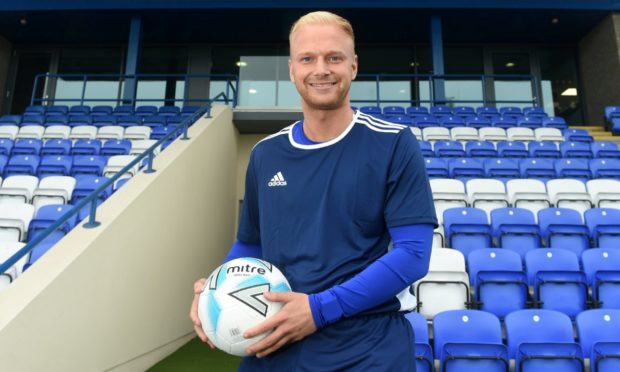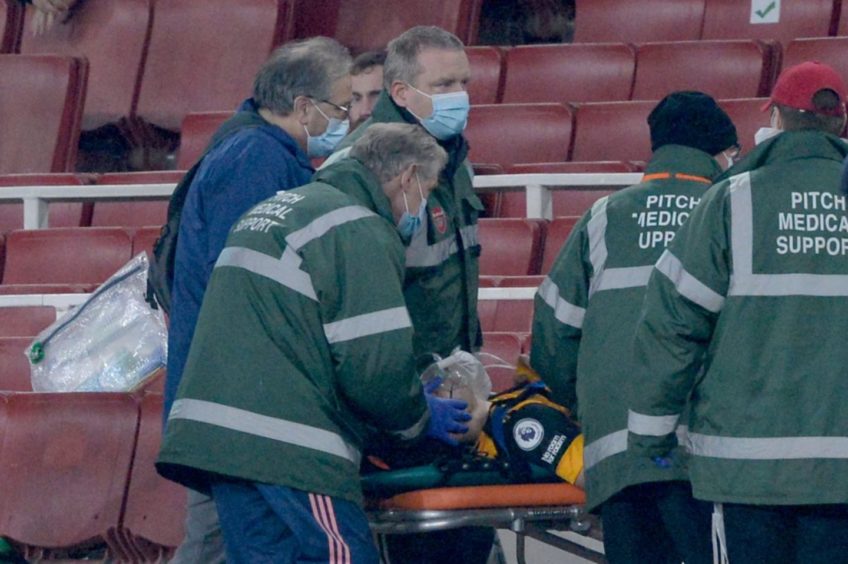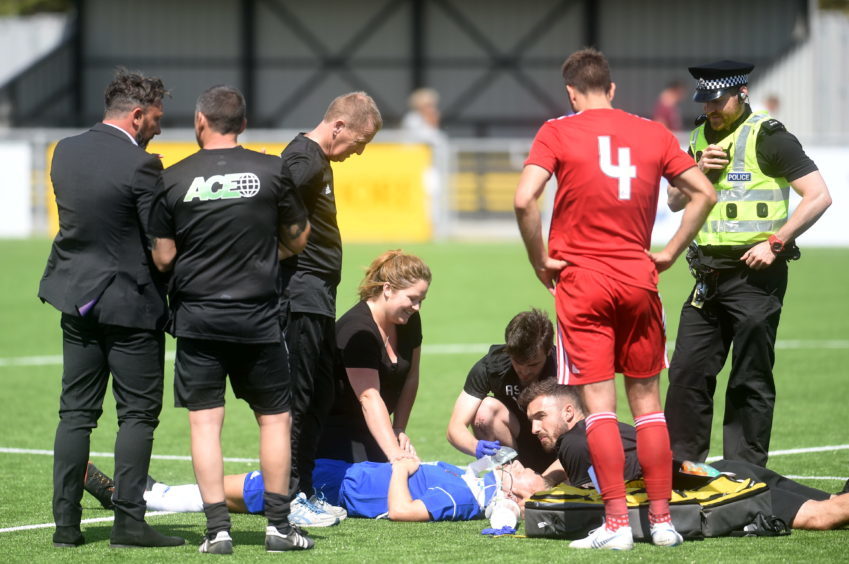Cove Rangers’ Jordon Brown would back action to help combat concussion in football.
Brown was knocked out during a pre-season friendly against Aberdeen in July 2018, which was due to mark the opening of Cove’s Balmoral Stadium.
He had been injured in a collision with his former Aberdeen team-mate Andy Considine, which prompted the game to be abandoned and Brown taken to hospital. He suffered severe concussion and was off work for a fortnight afterwards.
Calls for concussion substitutes have become prevalent of late, in the wake of Wolves striker Raul Jimenez suffering a fractured skull in a clash with Arsenal’s David Luiz at the weekend.
Luiz was permitted to continue with a head bandage after the 15th-minute incident, until half-time where he was substituted.
The issue is due to be discussed when the International Football Association Board, the body which governs law-making in the sport, meets on December 16. The new rules would permit teams an additional substitution in the event of a concussion and it is hoped it could be trialled in early 2021.
“It definitely needs looked at,” said Brown. “It comes into the limelight when it’s a big star in the Premier League – not that there wasn’t enough attention when it was myself and Andy.
“For a few weeks afterwards I could just do nothing and I was so lucky it was just severe concussion. I would say up until the start of this year it was still in the back of my head – ‘is it having a lasting effect or not?’
“It’s not just the physical side; when you start to overthink and wonder if you should get checked out again.
“It was more wondering what the effect of this was going to be in, say three months? Am I still going to be as empty? It takes time, like everything.
“That comes back to what’s in the news at the moment. People need to be pulled out of it straight away, properly evaluated and checked whether they’re ready mentally to go back into training or life in general.”
Whenever Brown feels he is particularly busy, under stress or has a headache, he does wonder whether the head knock he sustained is a contributing factor.
He had only joined Cove that summer from Peterhead and felt the internal pressure of wanting to impress at his new club. It reiterates the argument of taking the decision out of players’ hands when it comes to being safe to return to play.
“I made it back for the first league game, which looking back now I maybe shouldn’t have. But that was my own doing; I was at a new club, a new season and I wanted to go and play.
“I remember coming on and the ball came in at the near post. I headed it away – it’s second nature on the pitch. It’s not so much of an issue on the pitch. It’s coming into work, speaking to people on a daily basis, that’s the hardest part.
“I saw his (Jimenez’s) Twitter post saying he hoped to be back on the pitch soon. Is that realistic? I don’t know.
— Raúl Jiménez (@Raul_Jimenez9) November 30, 2020
“I did some reading around it when it happened to me. Ryan Mason had to retire because of a fractured skull, Petr Cech was able to wear a (protective) cap being a goalie. But a big part of Raul Jimenez’s game is heading footballs.
“There needs to be something done about it, whether that’s an extra substitution or stricter precautions around it. I don’t think David Luiz should have played on in that game. I saw one replay of it and it was horrible.
“When it’s happened to you, you can relate to it a little bit. I think everyone would squirm away from the TV when that was on.
“It shows the risks there can be and that’s just from impact ones. There’s been other stuff in the news about the impact of dementia – I think all that needs to be considered. The evidence is there now and if we can do anything to be precautionary about it, we should.”
Four of England’s 1966 World Cup-winning side – Martin Peters, Nobby Stiles, Jack Charlton and Ray Wilson – suffered with dementia prior to their deaths and it was revealed recently that Bobby Charlton was also living with the disease. Celtic legend and ex-Aberdeen manager Billy McNeill also had dementia when he died in April 2019.
There has also been a ban on children under the age of 12 heading footballs in training, following research which showed a potential link between heading and dementia.
“No injury is ever the same but if you’ve got a baseline you can work towards and one set of rules governing it, then it makes things a lot more acceptable.
“You don’t want anyone to have a head injury at any level of football. That leads into a bigger discussion about how much emphasis should be on players not heading balls.
“I remember doing drills when I was younger, where you’re getting the ball thrown to you. Is that really needed for kids? That’s just heading a ball, not taking into consideration what happened at the weekend and what happened to myself.


